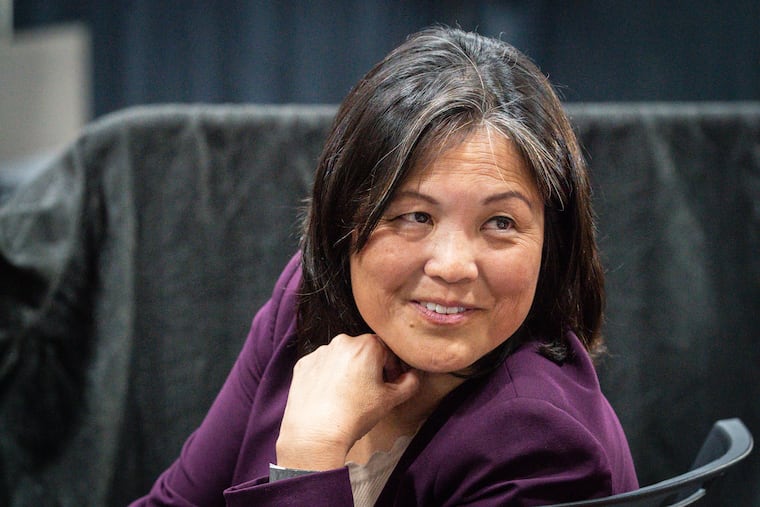Low salary and no overtime: Two Philly-area workers reflect on proposed labor rule change
The proposed rule would raise the salary threshold for overtime-exempt workers, requiring employers to pay overtime to people making about $55,000 or less per year.

As a secretary at a Philadelphia-area school, Lynn works 12 months a year and makes about $45,000 annually.
Her hours are generally 7:30 a.m. to 4 p.m. with a 30-minute lunch break. But Lynn, who asked not to use her last name out of concern for her job, often ends up coming in early or taking work home with her so she can catch up on data entry when she won’t be interrupted by phone calls.
“Some weeks it’s five hours, sometimes it’s 10 hours” of extra time, she said, but she doesn’t get paid anything more than her base salary those weeks.
That could change, if a new overtime rule from the U.S. Department of Labor takes effect.
Proposed in August, the rule would require that employers pay overtime to employees who make less than $1,059 per week, which comes out to about $55,000 annually. Currently, employers must pay overtime to any workers making less than $35,568 annually. The rule change would also automatically update the salary threshold every three years based on current earnings data.
“I’ve heard from workers again and again about working long hours for no extra pay, all while earning low salaries that don’t come anywhere close to compensating them for their sacrifices,” Acting Secretary Julie Su said when announcing the proposal.
The Labor Department is reviewing thousands of public comments on the proposal before issuing a final rule.
Lynn, the secretary, likes her job, she said. But it has become difficult to finish her work in a 40-hour week as other positions in her department were eliminated and the tasks of those jobs were distributed among those who remained.
“Your work starts taking over because you’re worried about not getting your job done,” Lynn said.
If the overtime rule changes, she said, she would feel empowered to leave after an eight-hour workday even if some tasks were unfinished, or at least know she will get paid for the extra time it takes to complete them. She would take a day off and not check her email. Or, Lynn suggested, if her employer raised her salary above the proposed new threshold to keep her exempt from overtime, she wouldn’t mind the extra hours so much.
“If they hourly paid us, and we actually got paid for the hours we put in, they would realize how hard we work,” Lynn said.
Dalila Bedoya is an educator who works with children of all ages across a dozen schools. Her job involves visiting families in person and helping them access resources needed “to have a learning environment at home.”
Typically Bedoya works from about 7:15 a.m. to 3 or 4 p.m. throughout the school year, making about $46,000 per year. But meeting with families often has to happen in the evening.
Bedoya has worked this job for nearly eight years. As a mother of two, aged 15 and 11, she’s found “it takes a lot of organization” to get dinner on the table for them on nights when she has to meet with students’ families.
If the Labor Department’s proposed rule goes into effect, Bedoya said, any time she gains will go to “being a parent.” If she does work overtime, she said, getting paid an extra amount for it will allow her to save for her children’s education or to take a family trip.
Lynn and Bedoya are both members of WorkMoney, a nonprofit organization that aims to help members save money by accessing discounts, reducing debt, and navigating government programs when they’re eligible. WorkMoney has been lobbying the Labor Department for the proposed rule change.
WorkMoney is a 501(c)(4) organization, which means it does not have to publicly disclose its donors. It launched in 2020 and worked the following year to influence moderate lawmakers to pass pieces of President Joe Biden’s agenda.
In September, the nonprofit surveyed 1,652 members about the rule change and found that 83% favor or strongly favor the proposal. Support was similarly high among respondents who identified as Democrats, Republicans, and Independents, WorkMoney said.